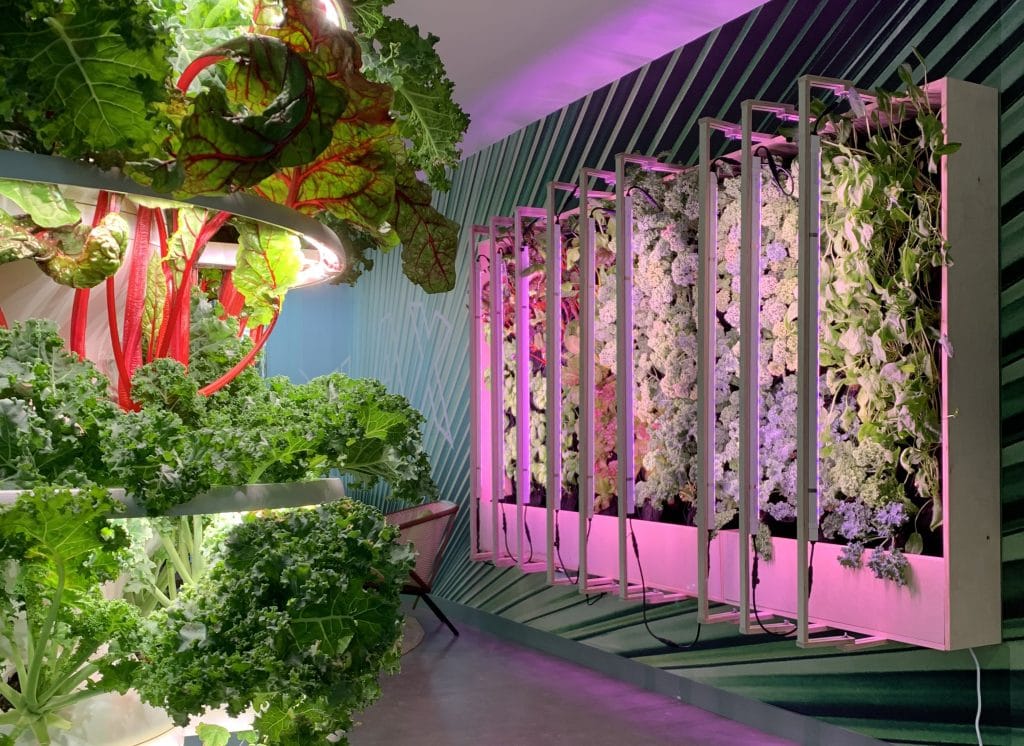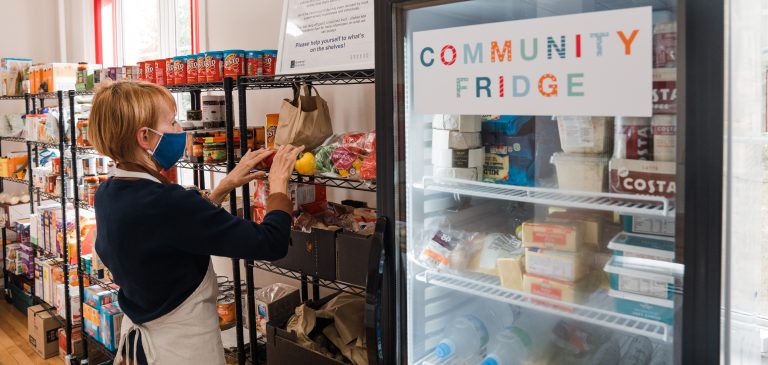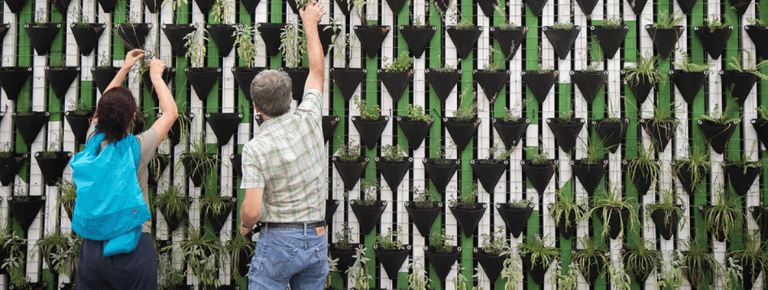Urban farming installations
Vertical farm installations and services in offices and residential buildings.

Problem Addressed
This solution addresses the following challenges:
- Need to mitigate the damages of existing agricultural food production (soil erosion, water use, pesticide use, loss of habitat, food miles, low nutritional content of mass-produced food).
- Need to reduce the carbon footprint of the built environment and create a more circular economy in urban food production, consumption and composting.
- Need to restore biodiversity (esp in cities) and air quality with planting special plant varieties and encourage pollinators and natural air filtration.
- Need to address urban ‘food deserts’ in large cities, particularly in lower income neighbourhoods and give more ready access to fresh, healthy produce.
- People’s general limited awareness and/or lack of empowerment to make a difference in their habits and lifestyle to make a positive impact on the above challenges.
Case Study
Square Mile Farms currently have several installations across London. Examples:
- Farm in Grosvenor Group HQ building with crops being grown together with employees and harvest being service in employee canteen.
- Farm in Vodafone Group HQ with crops being grown together with employees and regular harvests collected by employee for consumption of fresh produce at home.
For both of the above, Square Mile Farms manages social network with employees to schedule events, offer advice and respond to enquiries - Community Farm at Paddington Central (in partnership with British Land and Wipro) where local tenants from Paddington Central estate can collect fresh produce at regularly scheduled harvests. Square Mile Farms is also running a series of twice monthly workshops with local school children to visit the farm and learn about the importance of eating healthy, local greens and learning about sustainability.
- Network of farms across a residential apartment block in West London. Residents in the building all have access to regularly harvested produce. Square Mile Farms will also connect with residents via a community app and offer services to those who wish to grow in their own homes as well as participate in communal farm operations (eg voting on next crops, volunteering for harvesting).
Facts and Figures
90
%
This page presents data, evidence, and solutions that are provided by our partners and members and should therefore not be attributed to UKGBC. While we showcase these solutions for inspiration, to build consensus, and create momentum for climate action, UKGBC does not offer commercial endorsement of individual solutions. If you would like to quote something from this page, or more information, please contact our Communications team at media@ukgbc.org.
Related members
Related
Community Fridge
Reducing food waste and empowering communities.

Climate Democracy Model
Taking a holistic view of what it takes to mitigate climate change and build climate resilience in cities and regions through democratic means.

Aeroponic vertical farm
Innovative, aeroponic indoor farming technology to decrease pressure on, and scale up, food production.

Co-production and community engagement for nature based solutions
A co-creative, arts-based engagement process developed to support cities in the design, delivery and stewardship of nature-based solutions.

